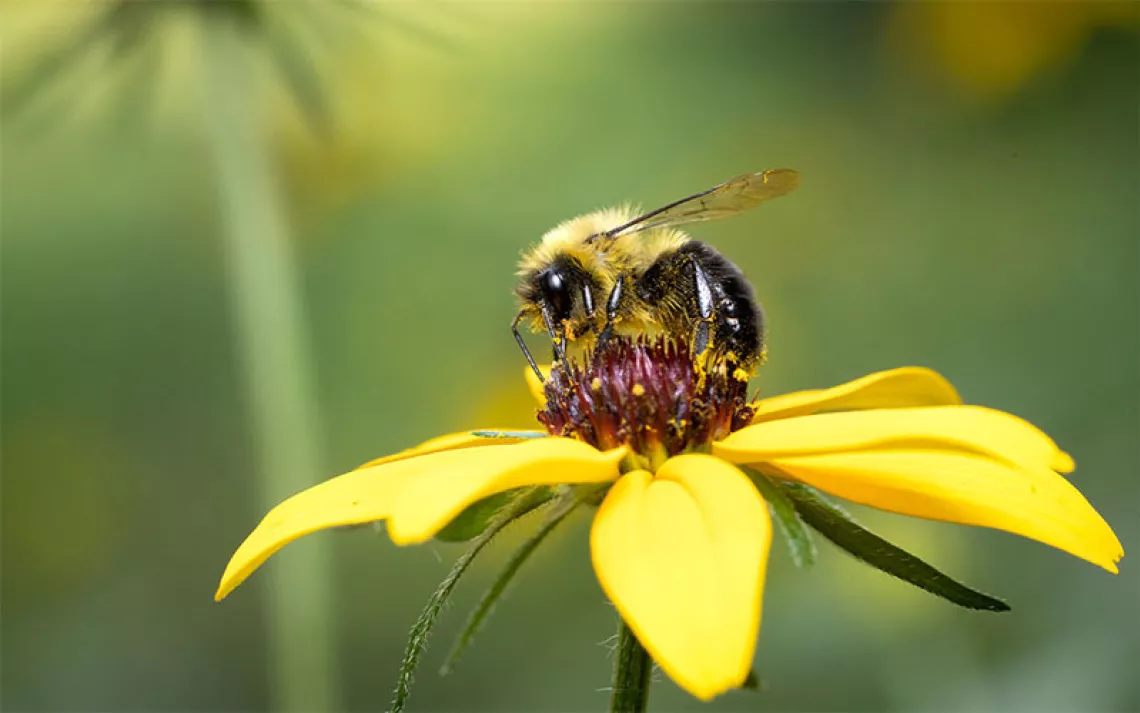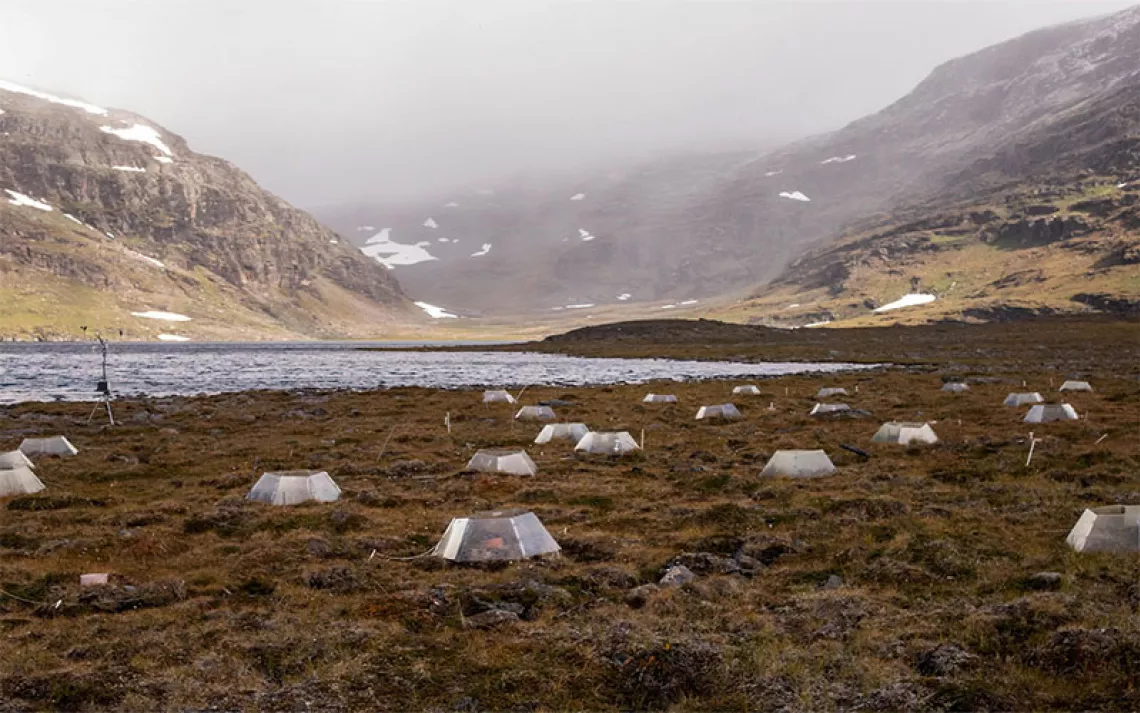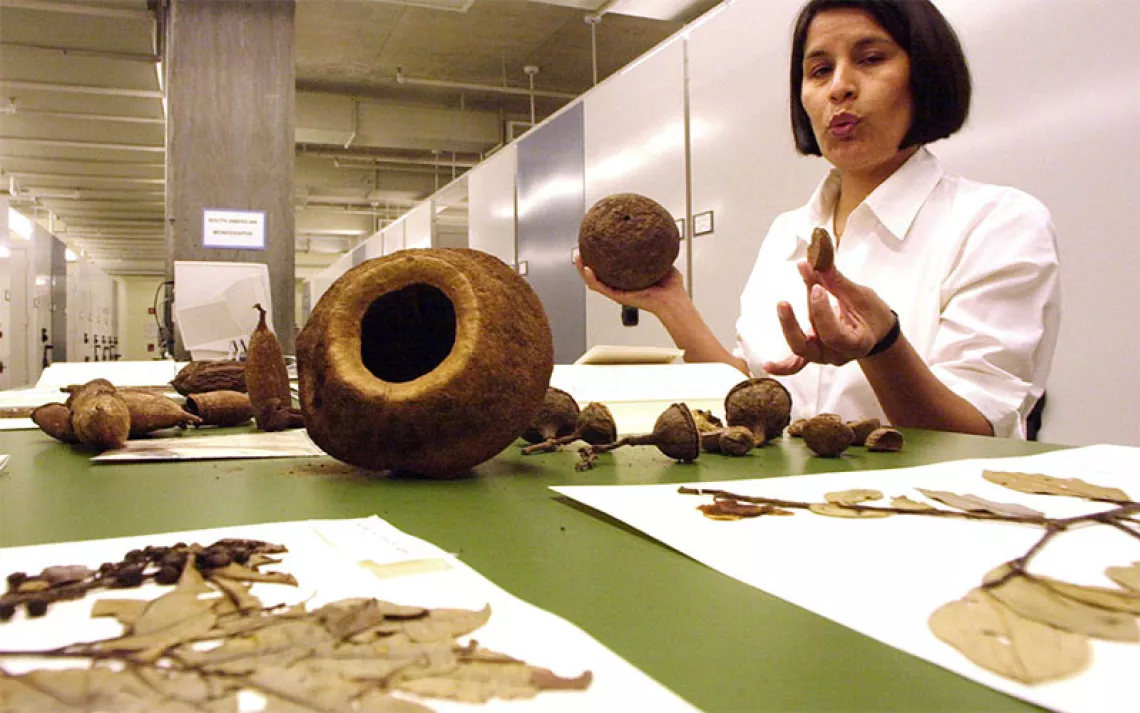Microbiome Is a Human Right
You’ve got to fight for your right to microbes

Photo by SS Creative | iStock
It’s a tough world out there for young scientists. In 2015, Suzanne Ishaq was a freshly minted PhD in animal, nutrition, and food science, with significant experience in teaching and investigating the microbes present in the digestive tract of large ruminants. She found a gut microbiology post-doc at Montana State University and began working on papers with titles like “Zinc AA supplementation alters yearling ram rumen bacterial communities, but zinc sulfate supplementation does not,” and “Pelleted-hay alfalfa feed increases sheep wether weight gain and rumen bacterial richness over loose-hay alfalfa feed.”
Then the funding ran out. She switched to a different research project involving soil microbes (sample article: “Soil bacterial communities of wheat vary across the growing season and among dryland farming systems”). The funding ran out on that too. She moved on to a different project at the University of Oregon—one that involved studying the microbiology of indoor spaces (“Monitored indoor environmental quality of a mass timber office building: a case study”).
No matter where she moved, some things were the same, whether she was studying a digestive tract or a patch of dirt or a building. But switching specialties was stressful—she always felt like she was catching up. “I wouldn’t recommend it,” says Ishaq cheerfully. “But it did give me a fabulous perspective.”
Then, at the University of Oregon, Ishaq got the chance to pitch a project that she’d been wanting to do for a long time—a survey course entirely dedicated to microbes and equity. Being a good and thoughtful home to a healthy population of microbes is essential to not being miserable and not dying—some of the most healthy foods that we can eat, like beans and leafy greens, are healthy precisely because they’re feeding the right kinds of bacteria, not because they’re so great for us all on their own. “Butyrate has so many health benefits,” says Ishaq, “but it’s really just the trash of a bacteria that metabolizes fiber. The cells along your digestive tract like to use it for energy—butyrate encourages a nice thick cell barrier along your intestines so that the wrong bacteria can’t get past your digestive system barrier.”
She had noticed a wide crevasse between the kind of research she had worked on and what she saw in nonscientific circles, where the idea of “good” bacteria was mostly being wielded as a sales tool to sell fancy yogurt. “Most people,” says Ishaq, “don’t think of microbiology as a force for good and as a tool for social policy.”
To that end, Ishaq and the 15 students—13 of whom were nonscientists who just happened to be really curious about microbiomes and social justice—scrutinized the existing research. At the end of the class, the students had produced a massive, 10,000-word analysis of the state of the current science and political realities. A leaner, 2,500-word version of what public policy might look like if a healthy microbiome was considered an essential human right passed peer review and was published in PLOS Biology. If any of these ideals became actual policy, here are a few highlights of what that might look like:
Baby got bacteria
Since 1990, C-sections around the world have more than tripled from about 6 percent of all births to 21 percent, partly because C-sections are more lucrative for medical facilities and easier to schedule. But research suggests that cesarean delivery, when it isn’t medically necessary, can be more dangerous for infants because it exposes them to less parental bacteria than a vaginal birth, making them more vulnerable to being colonized by dangerous bacteria once they’re born.
Since babies can also acquire useful bacteria through breastfeeding and parental contact, a pro-baby-bacteria public health policy could support parents who only want a C-section as a method of last resort and mandate generous parental leave policies—and facilities for breastfeeding and pumping for parents of all income levels.
Free fiber for all
Lack of microbial diversity in the gut is correlated with health risks like diabetes, depression, and anxiety. Providing universal access to healthy foods that promote microbial diversity, requiring school lunch programs and companies that sell to children to make actually healthy products, and providing financial assistance to produce stands in food deserts isn’t going to fix health problems in every case, but it would produce better health outcomes overall. “You would never think to argue for having healthy school lunches because it’s good for your gut microbiome,” says Ishaq, “but at the same time the evidence keeps showing up.”
Indoor air pollution would be the new outdoor air pollution, and outdoor air pollution couldn’t be zoned to just exist in poor neighborhoods
People who live in buildings that have mold or other air quality issues also have altered microbiomes—and often less access to parks and other wild areas that would help them pick up more diverse bacteria. Outdoor air pollution is still a problem, and getting worse under the Trump administration. Well-maintained construction, sensible building codes, and access to parks and other wild areas are already policies that most people claim to approve of, so adding a microbiotic justification for those policies wouldn’t be likely to hurt the cause, and might help.
Earlier this year, Ishaq was hired at the University of Maine, where she’s back to studying the gut microbes of animals like sheep and cattle. This time, she's looking at not just probiotics but also prebiotics (that last one involves eating fibrous foods that encourage beneficial bacteria to grow, rather than the bacteria itself).
She’s still interested in doing more work on microbes and equity, she says. The good news about microbes is that they’re adaptable—if people have access to clean air, clean water, and healthy food, their microbiome will grow more diverse over time and adapt, and those people will become healthier. The microbes you acquire as a baby are important, but they are not your destiny.
The less good news is that there is already plenty of science out there touting the benefits of the same public health measures that Ishaq and her coauthors endorsed. C-sections are dangerous for parents, not just microbe-needing babies. The many, many benefits of a diet high in fiber have been scientifically established for decades. Current EPA policies aside, it’s already pretty clear that air pollution is not great.
But that doesn’t mean it is frivolous to come up with one more scientific reason why keeping people well-fed, and giving kids access to dirt and playgrounds, and zoning cities to allow for urban farms and green spaces for every neighborhood is good for society. We may have all these reasons already, but here’s one more. “It is,” Ishaq says, “one more feather on the scale.”
 The Magazine of The Sierra Club
The Magazine of The Sierra Club



